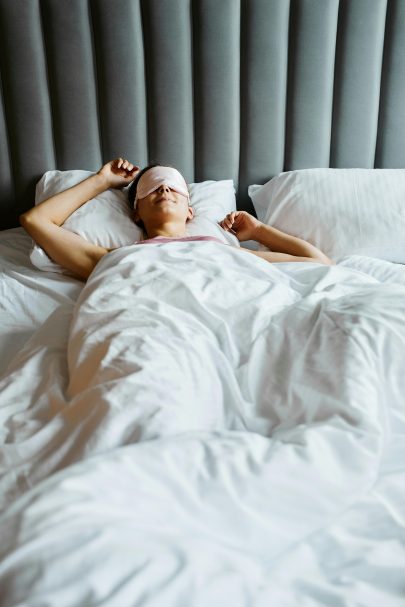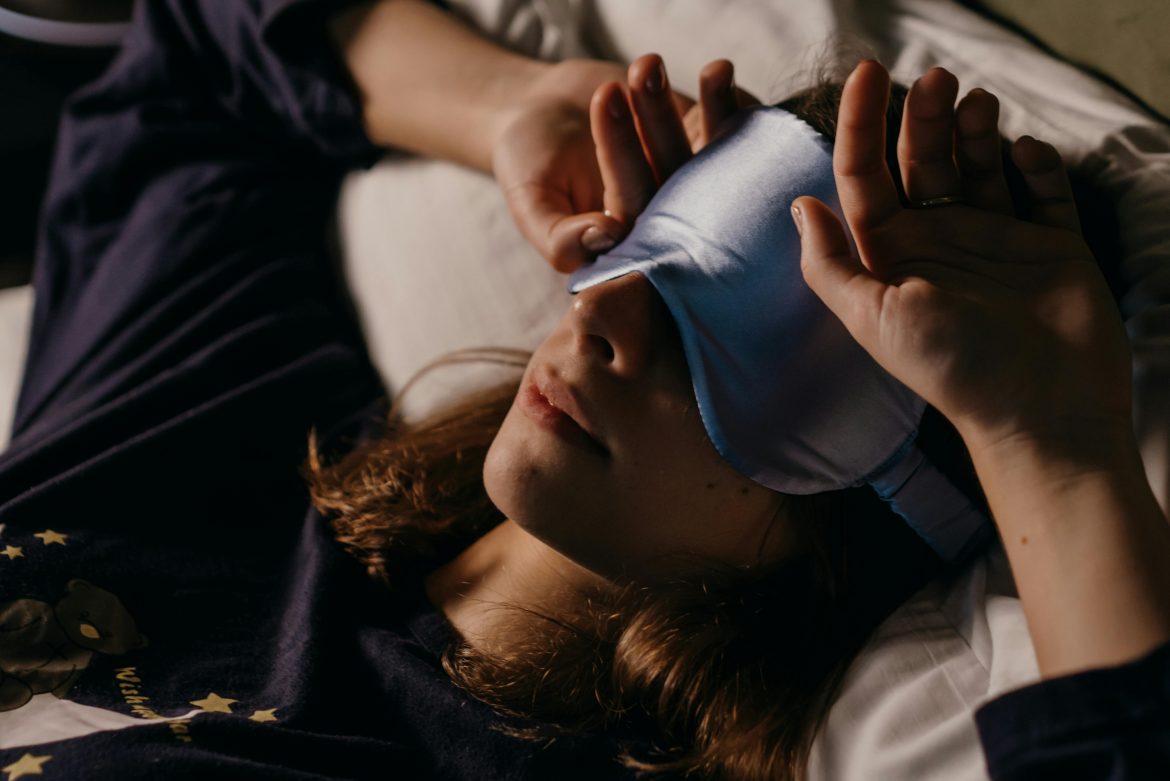If you’ve ever tossed and turned at night, struggling to fall asleep, your mind racing while your body begs for rest, you might have blamed stress, hormones, or screen time. But what if the solution lies not in your bedtime routine—but on your plate?
A growing body of research suggests that diet plays a much bigger role in our sleep quality than we might have realised. And if you’re tired of feeling tired, it might be time to look closely at what you’re eating.
ALSO SEE: 5 Benefits of a weighted sleep mask
What the latest research reveals
A recent study from Japan analysed the diet and sleep patterns of nearly 5,000 people using health-tracking apps. The results? Those who consumed more protein and fibre slept longer and more soundly compared to participants with diets high in fat, sodium, and calories. In short, healthier diets led to better rest.
The difference wasn’t massive—on average, the highest protein consumers got just over 15 minutes more sleep per night—but when you’re already struggling, even a small improvement can feel like a breakthrough.
Why fibre and protein make a difference
What we eat can directly affect the hormones that regulate our sleep. Protein-rich foods may help the body produce more serotonin and melatonin—two hormones that play a crucial role in the sleep-wake cycle. Serotonin helps to calm the brain and improve mood, while melatonin signals to the body that it’s time to wind down.

Dupe
Fibre, on the other hand, supports sleep through its positive impact on gut health. A healthy gut microbiome has been linked to more stable sleep patterns, fewer night-time disturbances, and even improved mental health. When fibre helps balance your gut bacteria, it can have a knock-on effect on the quality of your rest.
Foods that could be keeping you up
While protein and fibre are your sleep allies, certain foods may be standing in the way of a good night’s rest. Highly processed meals—think takeaways, sugary snacks, and white bread—can cause blood sugar spikes and crashes, leading to cravings and restlessness later on. Similarly, diets high in saturated fats and salt have been associated with shorter sleep durations and lighter, less restorative sleep.

Dupe
Alcohol and caffeine are the usual suspects for disrupted sleep. Even if a glass of wine helps you doze off, it can fragment your rest and make you more likely to wake during the night. And while your afternoon coffee may feel harmless, caffeine can linger in the body for hours, blocking adenosine—a key chemical that promotes sleepiness.
Hunger pangs and night-time wakeups

Pexels
Fibre isn’t just good for digestion—it also keeps you full for longer. If you’ve ever woken up ravenous in the early hours, your diet may be to blame. A meal that balances protein, fibre, and healthy fats can help maintain blood sugar levels overnight, reducing the chances of you waking up hungry or restless.
It’s not just what you eat—it’s when
Though the Japanese study didn’t account for meal timing, experts agree that when you eat matters. Eating heavy meals too close to bedtime can interfere with digestion and make it harder to fall asleep. Aim to finish dinner a few hours before bed, giving your body time to wind down along with your mind.
The bigger picture
Sleep and diet share a bidirectional relationship—one influences the other. When we sleep poorly, we’re more likely to crave high-carb, high-sugar foods for a quick energy boost. But these foods can make it harder to fall asleep, creating a vicious cycle of fatigue and unhealthy choices.
The good news? Making even small improvements to your diet—like adding more vegetables, choosing whole grains, or swapping your afternoon snack for something more nourishing—can support your body’s natural sleep rhythms.
So, while there’s no single superfood that will knock you out at 10 pm sharp, a consistently healthy, balanced diet may just be the missing piece in your sleep puzzle.
ALSO SEE:
Featured Image: Pexels

